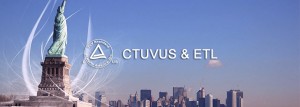Introduction of India power battery standard IS 16893
Introduction of India power battery standard IS 16893,
IS 16893,
▍What is CTIA CERTIFICATION?
CTIA, the abbreviation of Cellular Telecommunications and Internet Association, is a non-profit civic organization established in 1984 for the purpose of guaranteeing benefit of operators, manufacturers and users. CTIA consists of all U.S. operators and manufacturers from mobile radio services, as well as from wireless data services and products. Supported by FCC (Federal Communications Commission) and Congress, CTIA performs a large part of duties and functions that were used to be conducted by the government. In 1991, CTIA created an unbiased, independent and centralized product evaluation and certification system for wireless industry. Under the system, all wireless products in consumer grade shall take compliance tests and those complying with the relevant standards will be granted to utilize CTIA marking and hit store shelves of North American communication market.
CATL (CTIA Authorized Testing Laboratory) represents labs accredited by CTIA for testing and review. Testing reports issued from CATL would be all approved by CTIA. While other testing reports and results from non-CATL will not be recognized or have no access to CTIA. CATL accredited by CTIA varies in industries and certifications. Only CATL which is qualified for battery compliance test and inspection has access to battery certification for compliance to IEEE1725.
▍CTIA Battery Testing Standards
a) Certification Requirement for Battery system Compliance to IEEE1725— Applicable to Battery Systems with single cell or multiple cells connected in parallel;
b) Certification Requirement for Battery system Compliance to IEEE1625— Applicable to Battery Systems with multiple cells connected in parallel or in both parallel and series;
Warm tips: Select above certification standards properly for batteries used in mobile phones and computers. Do not misuse IEE1725 for batteries in mobile phones or IEEE1625 for batteries in computers.
▍Why MCM?
● Hard Technology: Since 2014, MCM has been attending battery pack conference held by CTIA in US annually, and is able to obtain latest update and understand new policy trends about CTIA in a more prompt, accurate and active way.
●Qualification: MCM is CATL accredited by CTIA and is qualified to perform all processes related to certification including testing, factory audit and report uploading.
Recently Automotive Industry Standards Committee (AISC) released standard AIS-156 and AIS-038 (Rev.02) Amendment 3. The test objects of AIS-156 and AIS-038 are REESS (Rechargeable Energy Storage System) for automobiles, and the new edition adds that the cells used in REESS should pass tests of IS 16893 Part 2 and Part 3, and at least 1 charge-discharge cycle data should be provided. The following is a brief introduction to the test requirements of IS 16893 Part 2 and Part 3.IS 16893 is apply to the secondary lithium-ion cell used in electrically propelled road vehicles propulsion. Part 2 is about the test of reliability and abuse. It is consistent with IEC 62660-2: 2010 “Secondary lithium-ion cells used in electrically propelled road vehicles propulsion – Part 2: test of reliability and abuse” published by the International Electrotechnical Commission (IEC). The test items are: capacity check, vibration, mechanical shock, crush, high-temperature endurance, temperature cycling, external short-circuit, overcharging and forced discharging. Among them are the following key test items:
IS 16893 Part 3 is about safety requirements. It is consistent with IEC 62660-3: 2016 “Secondary lithium-ion cells used in electrically propelled road vehicles propulsion – Part 3: safety requirements”. The test items are: capacity check, vibration, mechanical shock, crush, high-temperature endurance, temperature cycling, overcharging, forced discharging and forced internal short-circuit. The following items are important.




![[Korea RRA]](https://cdn.globalso.com/un383mcm/GOST-R-Certification1-300x107.jpg)
